During our drive from Yangon to the Golden Rock at Kyaikhtiyo we made a number of brief rest stops at less famous sites. Some were more interesting than others.
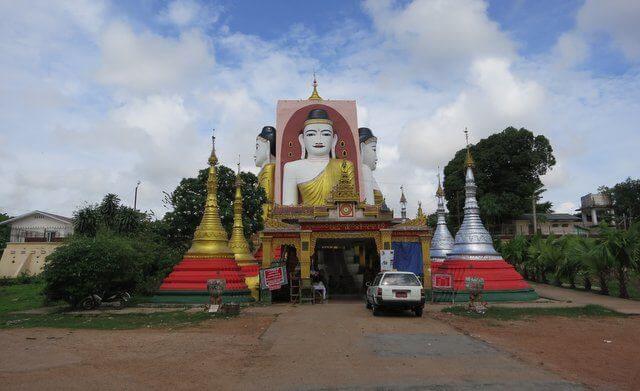
Kyaik Pun Paya
Kyaik Pun Paya
A few miles from the Bago is Kyaik Pun Paya – home to the Four Seated Buddha Shrine. This 27m (90ft) high statue depicts the Buddha’s four seating positions, all back to back.
This place has the gaudy, whitewashed look of a hastily built tourist trap, hoping to make money out of visitors to Bago, so I was surprised to learn it was built in the 15th century.
I’d guess visitors were rare as the surrounding stalls were unpleasantly pushy, and there was nowhere to buy a drink.

Shwethalyaung Buddha
(Not) Shwethalyaung Buddha
The sign above the door says ‘Naung daw gyi mya tha lyaung’ (it’s a big sign), but for brevity’s sake I’ll stick with the slightly shorter Shwethalyaung. (edit: It’s not Shwethalyaung Buddha – see the comments)
Very similar in design to the ChaukHtatGyi Reclining Buddha in Yangon, this statue was less ornate and more lifelike, and in a far more attractive location. Again this Buddha looks shiny and new, but was built in 994.
Entrance fees: free, despite being the best stop of the day.
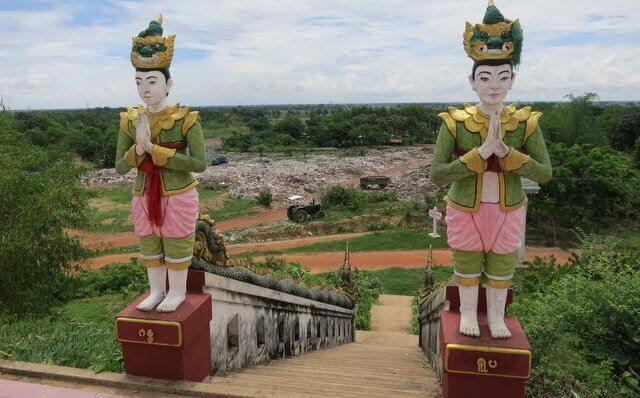
Snake Monastery – don’t look too closely at the background
Snake Monastery
This site was divided into two areas. The first was home to a huge snake that is said to be the 120 year old reincarnation of the former head of a monastery in Hsipaw.
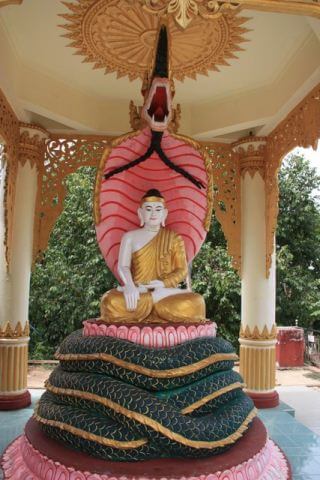
Naga statue at the Snake Monastery
The second area is a high platform dedicated to snake gods.
Looking west from the top it was possible to see a vast expanse of countryside, dotted with golden stupas towering over the lush green forest. It would be a perfect place to watch a dazzling sunset through the multi-coloured clouds.
Looking east from the top is a stinking pile of burning plastic giving off clouds of smoke, which may explain the unnatural hue to the area.
The three dusty beggars at the snake monastery take a different approach from those in Yangon. Rather than a smile or a wince and a polite request they lead with a shouted “Give me money!” and make a grab for your pockets.
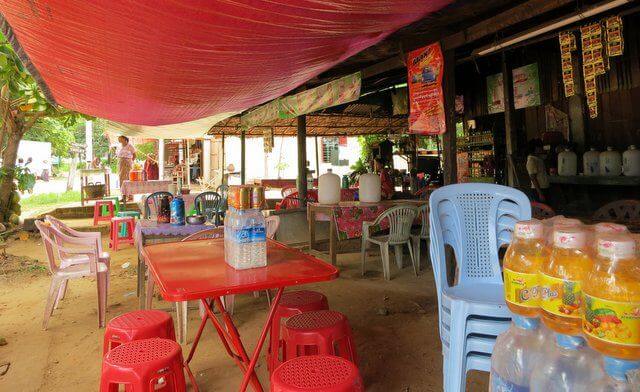
Not Hintha Gon Paya
Hintha Gon Paya
This temple marks the place where the Buddha was said to have appeared to two birds and predicted the rise of a great city. It was built by the hermit monk U Khanti, who was also responsible for the Mandalay Hill we visited a few days later.
Apparently there’s a great view of Bago from the top, but by now it was the hottest time of the day, so the friendly restaurants at the bottom were a greater draw than a holy hillock.
The owner of the corner café was the most welcoming, so we sat and chatted to her for a while until she came out with a special treat:
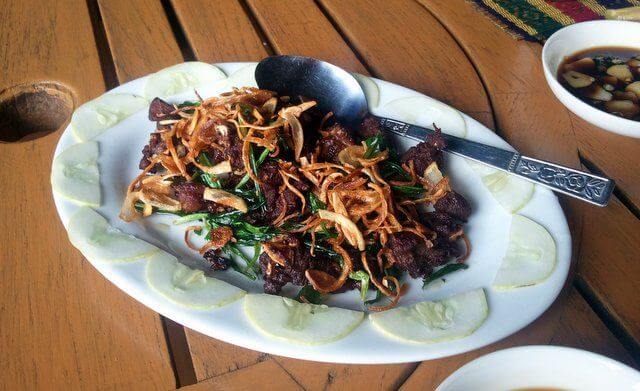
Deep Fried Porcupine with a garlic and soy sauce dip
Deep fried Porcupine
It’s a tough and gamey meat, most closely resembling pork. It tasted ok at the time, but led to having a higher than usual number of trips to the bathroom, which is awkward on a lengthy drive, and sapped our energy for the exhausting hike the following day.

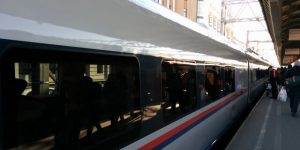




Pingback: @wesaidgotravel
Pingback: @solotravelclubs
Pingback: Dr. Jessica Voigts (@WanderingEds)
Don’t often see many travel bloggers featuring Myanmar… thanks for sharing the interesting photos! Can’t say I’ve ever tried Porcupine, but from the sound of it, maybe that’s a good thing 🙂
Myanmar is a beautiful place and I’d thoroughly recommend a visit. Come back soon for the pictures of Bagan, which is simply stunning
Ironically enough I stumbled upon some shots of Bagan earlier today.. it looks incredible, I can’t believe I hadn’t already heard of it. Can’t wait to see yours! How did you feel about safety while you were in the country?
It’s a strongly Buddhist country with a recently military government. The religion puts them off just as much as the harsh penalties. Our drivers regularly leaf their wallets on the dashboard and all the doors open whilst wandering off, so they must not be too worried either.
I do wonder if the recent opening up of tourism might change that for the worse though.
Pingback: @EscapingAbroad
Pingback: Chris & Tawny (@CaptainandClark)
Pingback: @BlogExpat
Pingback: @Jenna_Finch
Pingback: @Live_Intl
Hi, I just wanted to let you know that the buddha statue in the top photo is not the Shwethalyaung Buddha — the correct one is indoors not open to the air. You have to pay to visit it, so guides sometimes take people to another Buddha (which I guess is the one you visited) instead.
Good to know! There was a roof mentioned in the guide book. Given that it was written in 2004, I just assumed it was out of date, but you’re right – we must have gone to the wrong one…
You’ve got your reclining Buddhas muddled matey! Shwethalyaung Buddha
and ‘Naung daw gyi mya tha lyaung’ are two different sites – close to each other but quite different, the former being much older, and housed in a covered hall.
I did wonder about that, but our guide book was from 2004, so I figured the roof was missing!